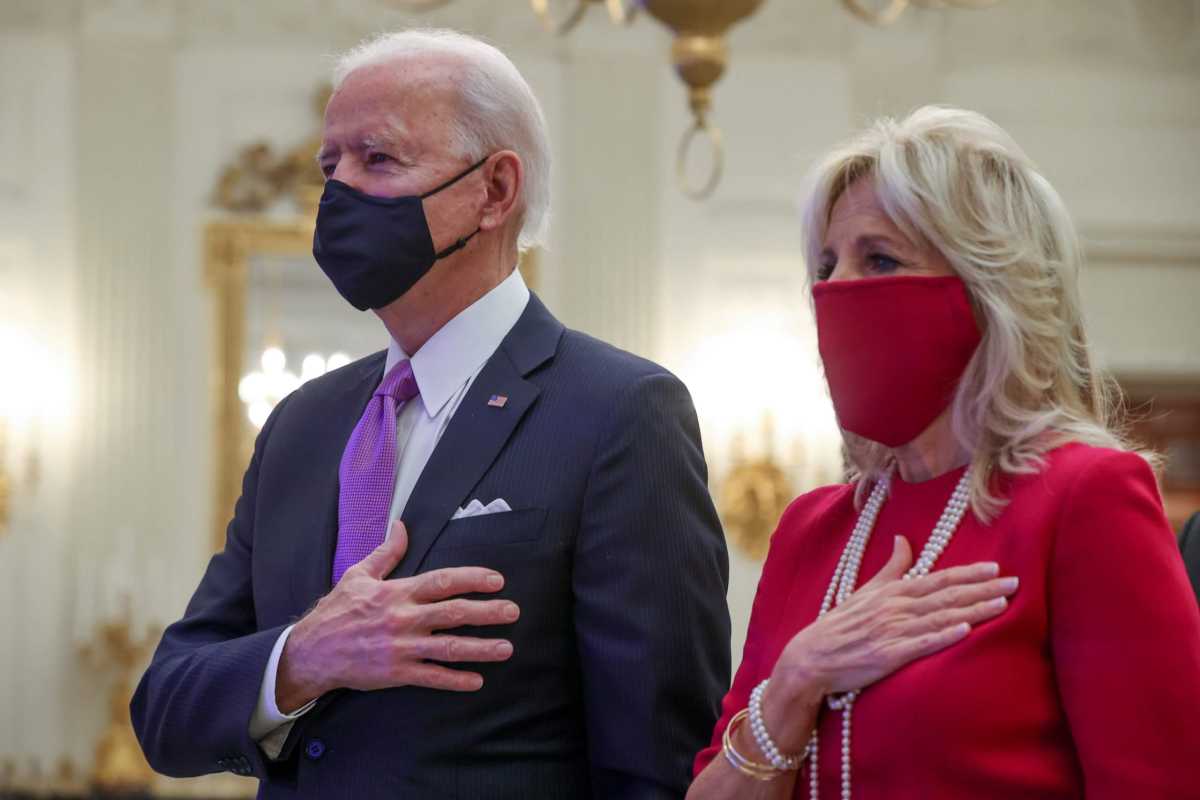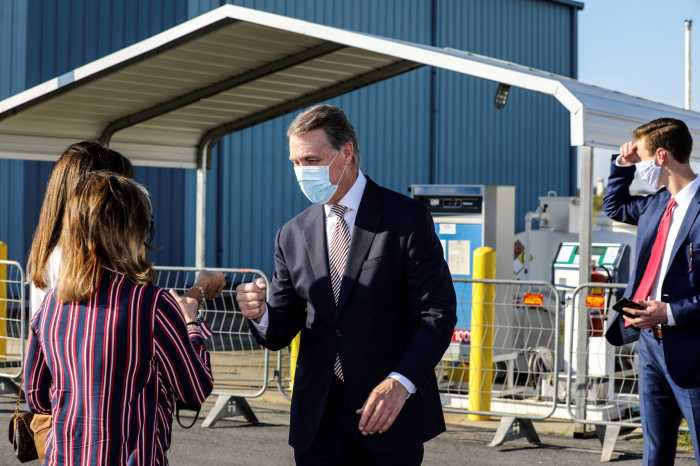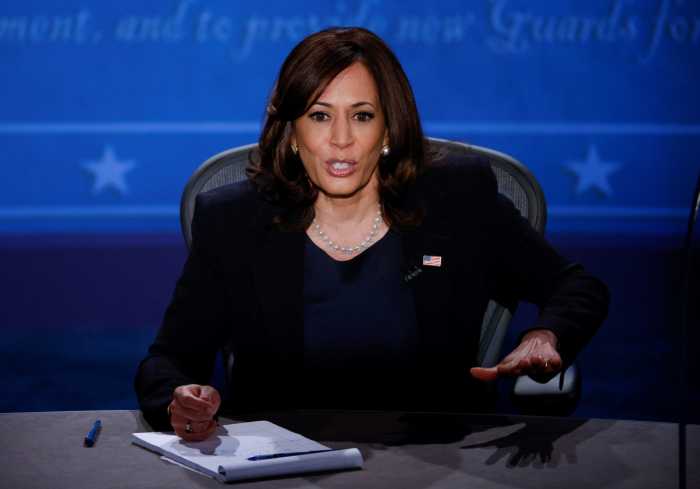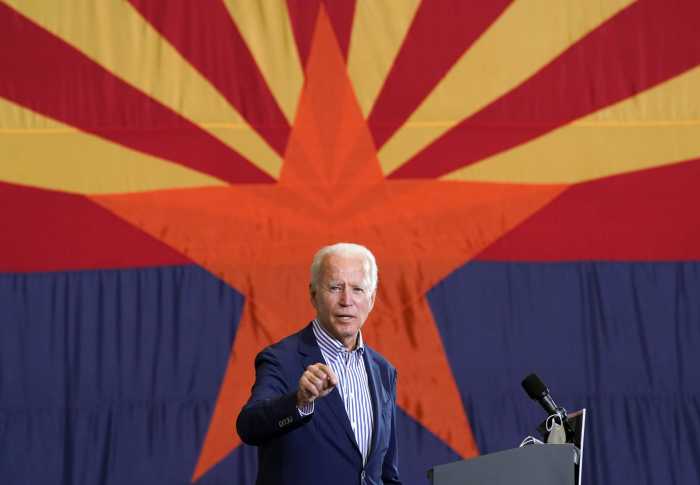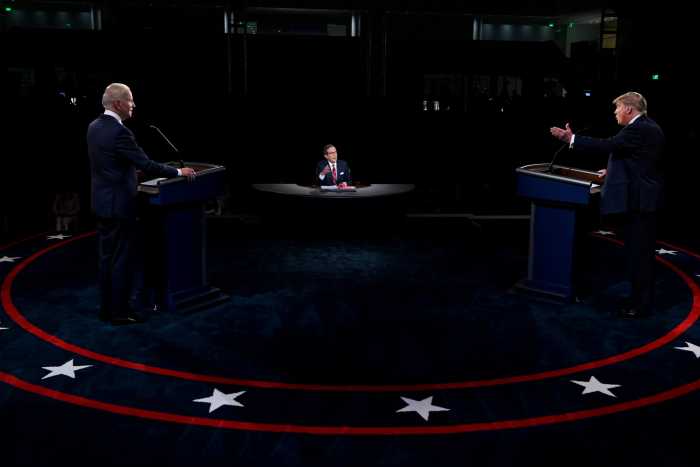By Trevor Hunnicutt and Nandita Bose, Reuters
U.S. President Joe Biden moved swiftly on his first full day in the White House on Thursday to fight the COVID-19 pandemic, his top priority as he turns the page on four years of Donald Trump’s tumultuous leadership.
The Biden administration is aiming at a coordinated federal coronavirus response to the 10-month pandemic, focused on boosting vaccines, increasing testing, reopening schools and addressing inequalities thrown up by the disease.
Trump, who frequently sought to play down the severity of the virus which has killed more than 405,000 Americans, left much of the pandemic planning to individual states, which has resulted in a patchwork of policies across the country.
“We can and will beat COVID-19. America deserves a response to the COVID-19 pandemic that is driven by science, data, and public health — not politics,” the White House said in a statement outlining its strategy against the coronavirus.
The pandemic has killed more people in the United States than anywhere in the world, and left millions out of work due to lockdowns.
The virus cast a shadow over Biden’s inauguration on the steps of the U.S. Capitol on Wednesday. Crowds, which often reach into the hundreds of thousands for the swearing-in of a president, were kept away for fear of spreading infections.
Biden will sign a series of executive orders related to the pandemic later on Thursday, including requiring mask-wearing in airports and on certain public transportation, including many trains, airplanes and intercity buses, officials said.
The administration will also expand vaccine manufacturing and its power to purchase more vaccines by “fully leveraging contract authorities, including the Defense Production Act,” according to the plan.
House of Representatives Speaker Nancy Pelosi said the DPA would also be used to speed up delivery of protective gear.
The Trump administration had invoked the law, which grants the president broad authority to “expedite and expand the supply of resources from the U.S. industrial base,” for protective gear, but never enacted it for testing or vaccine production.
Biden will also direct the Federal Emergency Management Administration to reimburse states and tribes fully for the costs associated with National Guard-related efforts to combat the virus.
The measure restores “full reimbursement” from the FEMA Disaster Relief Fund for costs related to re-opening schools. FEMA funds are typically dispersed after hurricanes, floods or other natural disasters.
Biden was due to speak on his COVID-19 efforts at 2 p.m. (1900 GMT)
The new Democratic president has put fighting the disease at the top of a daunting list of challenges, including rebuilding a ravaged economy and addressing racial injustice. Other issues the administration plans to address over the next 10 days include healthcare, the economy, immigration and climate change.
Biden signed 15 executive actions on Wednesday just hours after he was sworn into office, many aimed at sweeping away Trump’s policies.
Those included mandating masks on federal property and halting the withdrawal from the World Health Organization (WHO), as well as issues such as rejoining the Paris climate accord and ending a travel ban on some Muslim-majority countries.
TESTING, SUPPLY, TRAVEL PROTOCOLS
The 10 new orders Biden will sign on Thursday will establish a COVID-19 testing board to ramp up testing, address supply shortfalls, establish protocols for international travelers and direct resources to hard-hit minority communities.
Biden has pledged to provide 100 million doses of the coronavirus vaccine during his first 100 days in office. His plan aims to increase vaccinations by opening up eligibility for more people such as teachers and grocery clerks.
Additionally, he will issue a directive on Thursday including the intent to join the COVAX vaccine facility that aims to deliver vaccines to poor countries, Biden’s chief medical adviser, Anthony Fauci, told the WHO’s executive board on Thursday.
Trump had halted funding to the WHO and planned to withdraw from the group in July.
Fauci told ABC News rejoining the WHO was a critical step in helping to fight the outbreak.
“It going to be really very important. When you’re dealing with a global pandemic you have to have an international connectivity,” he said.
He added that he was confident the United States could recharge its vaccine response even as some states and localities have said they are running out of available doses.
“I think we’re going to be there reasonably soon,” he said.
Biden proposed a $1.9 trillion COVID-19 package last week that would enhance jobless benefits and provide direct cash payments to households to alleviate the financial pain from coronavirus.
Late on Wednesday, the Department of Education moved to extend the pause of student loan payments and said it would keep the interest rate at 0% to help ease financial burdens amid the pandemic. [nL4N2JW1D6]
Some of Biden’s early initiatives could get bogged down in Congress, where the U.S. Senate is considering how to proceed with the impeachment trial of Trump. The Democratic-controlled House impeached Trump last week for inciting an insurrection in the deadly rampage at the Capitol.
Pelosi has yet to send the article of impeachment to the Senate. According to Senate rules, the Republican former president’s trial would start the day after the charge is sent over.
Biden has urged lawmakers not to let Trump’s trial interfere with his legislative priorities and confirming his Cabinet.



